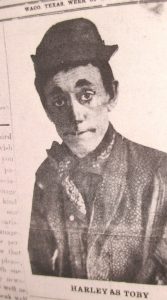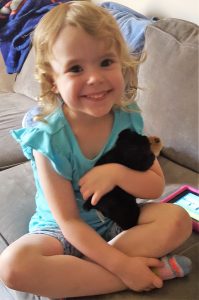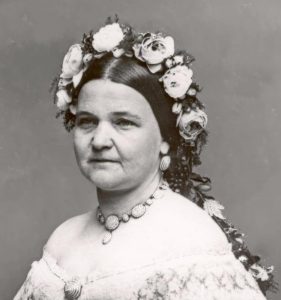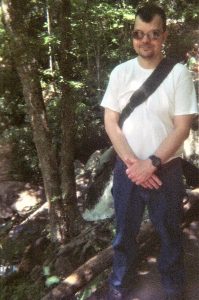Previously in the book: Hal Neely began his career with big bands and then entered the recording business, working with controversial producer Syd Nathan and soul star James Brown.
Hal Neely’s relationship with James Brown revolved curiously around specific events which evoked different memories from everyone involved. One of the best examples of this phenomenon was the creation of the history-making “Live at the Apollo” record album.
In April of 1959 James Brown was booked into the Apollo Theater for the first time. He was still riding high from the success of “Try Me,” and his booking agent Ben Bart, in charge of Universal Attractions, wanted to take advantage of it. The engagement brought back a former member of the Famous Flames, Bobby Byrd, who would spend the rest of his career flying in and out of Brown’s orbit.1
“I was a seasoned performer, but under the circumstances I was a nervous wreck,” Brown said in his autobiography. “The Apollo was a special place: it was the venue for black entertainers; it made a lot of people, but it broke a lot too. The audience was very tough and if they didn’t like you, they let you know.”
The Apollo Theater, on 125th St. off Eighth Avenue in the Harlem section of Manhattan, began as a burlesque house called Hurtig and Seamon’s Music Hall. A city crackdown on stripper shows in 1934 transformed the facility into what became the crown jewel of the “chitlin circuit”– a collection of theaters in the South and on the East Coast, allowing black audiences to enjoy black entertainers during the Jim Crow era.2
By the fall of 1962, James Brown was a major act but still not in the same league as Ray Charles or Jackie Wilson. Charles, for example, had already made a recording of a live show in 1969 called “In Person”. Brown wanted to do the same thing.3
Hal Neely, in interviews given later in his life, claimed the idea of a live recording was his. Whoever’s idea it was, Syd Nathan hated it, calling it silly. Very few live performances had been recorded because they could not be controlled.4 Another problem was that King Records made its money through the sale of singles which could be marketed easily on the radio. Nathan believed no hit single could come out of a live recording, and he wasn’t concerned with long-playing albums anyway.5
After Nathan so emphatically rejected his idea, Brown went to his booking agent, Ben Bart, with a proposition to make Bart his partner/manager. After some persuasion Bart agreed negotiating details with Brown’s other manager, Clint Brantley. He also turned over Universal Attractions duties to his son Jack Bart, according to Brown’s autobiography.
“We got into many battles over those years after my father passed the management of James over to me,” Jack Bart said. “This was due to the fact that James felt why should he pay a booking agency, why should he pay a manager? If it had been two separate families and our last names had been different, he probably wouldn’t have objected.”6
Brown gave one more shot at convincing Nathan to support the live at the Apollo album. Chuck Seitz, lead engineer with King at that time, described the meeting this way:
“I remember James came in one day needing money. He wanted Syd to give him $5000. Syd said, ‘I’ll give you $5000 if you’ll sign with me five more years.’ And James must’ve been up against it so he signed for five more years. And in that five-year period, the Apollo thing came around.”7
Bobby Byrd had a different recollection of the situation. “Didn’t nobody believe in us – none of the company executives at King Records believed in us. But see, we were out there. We saw the response as we ran our show. James took the money we had saved for an upcoming Southern swing ($5700) and gambled it on one night.” The gamble to which Byrd referred was Brown’s investment in the Apollo show.8
“Usually James fined his band members $5 or $10 for making a mistake, but this time, he put out the word that if anyone flubbed one note at the Apollo, it would be $50 to $100.” Instead of the usual arrangement with the Apollo, Brown and Bart put down the $5700 as theater rental.9
“Once Mr. Nathan saw I was going to go ahead with a live recording, he started cooperating,” Brown said in his autobiography. “Mr. Neely took care of getting the equipment from A-1 Sound in New York, the only ones who had portable stuff—Magnacorders, I think.”
Neely’s memory of the preparations were more detailed. The Apollo had the usual public address system, a mixer, four microphones and headphones. Neely rented and placed the additional equipment. There was no multi–tracking so what one got on the acetate single tape was the final product. Mixing was done on the fly. Drums and bass came in on different speakers. The board had switches instead of the sliders used today to control and come from speakers which were placed on the left, right, above and in front of the stage. Neely said he was not given credit for the recording, but the credit went to the company he rented the equipment from.10
“We had opened on the 19th (of October) and were building up to recording on the 24th, a Wednesday, which meant amateur night,” Brown said in his autobiography. “I wanted that wild amateur-night crowd because I knew they’d do plenty of hollering. The plan was to record all four shows that day so we’d have enough tape to work with.”
Once the concert had begun, Brown worried that Neely might have done too good a job stringing the microphones around the stage. One of them was right over an audience member–a woman who looked like she was 75 years old. In the middle of “I Love You, Yes I Do” Brown sang the line “from the way I look at you.” The mike clearly picked up her screaming “Sing it, mother***ker, sing it!” During a quiet rendition of “Lost Someone” which was supposed to be a serious song, the same old woman screamed loudly which caused the audience to laugh, according to his autobiography. Brown recovered and called for another “yeah” from the audience, causing them to continue to call out.11
“I wanna hear you scream. I wanna hear you saying OW!” After the response he added, “Don’t just say ow, say OW!”12
In the middle of the performance of the song “I Don’t Mind” the microphone picked up a minor argument between two audience members. A woman squealed, and a man rumbled back at her. When Brown sang “you gonna miss me” a woman yelled in response, “Yeah, you, baby, you! Ha-ha-ha … Yeah, you!” As it turned out, that was the same old woman who screamed “mother***ker.”13
Another version, however, said the old lady’s outburst was garbled and probably not the word “mother***ker”. Less than 30 seconds later, a scratchy, male voice says, “Sing a song, James.” This source conjectured that the garbled outburst was merely a squeak from the drum kit or the organ speaker. It went on to surmise that the audience mikes had been turned down when the crowd was expected to cheer and was turned up to catch the unexpected exclamations in the middle of songs.14
After the first show Neely brought the tape backstage for Brown and the rest of the musicians to hear, according to Brown’s autobiography. When Neely replayed the disputed outburst, everyone in the band laughed out loud. Neely did not catch the joke until the band explained what they thought the woman said. At first Neely thought it was terrible and the woman had to be kept from the other shows but when he saw the reaction of everyone backstage, he said, “Hey, maybe we’ve got something here.”
The legend15 developed that Neely went out to the lobby and found the old woman, bought her candy and popcorn and paid her $10 to stay for the next three shows. As if on cue she shouted at all the right places.
One last story that contributed to the legend of the night concerned a meeting between Brown and his long-lost mother. Neely said, “James hadn’t seen his mother in 20 years, and she showed up backstage at the Apollo that night.” 16 However, Brown said in his autobiography that the emotional reunion with his mother actually occurred during his first appearance at the Apollo Theater in 1959 when he opened for Little Willie John.
The controversy over credit for the recording did not end with the concert that cold October night in 1962. Again in the middle of the dispute was Hal Neely and his role in the final editing process. For one thing, the album cover credited Tom Nola as “location engineer” but Neely said he recorded it himself.17 James Brown in his autobiography gave Neely full editing acknowledgement, saying “he had a good mix of the performance and the audience, and he had fixed all the cussing so it wasn’t right up front. He figured it would be an underground thing for people who knew what the lady was screaming; he was right, too. He worked on the tape a long time and did a fantastic job of mixing it.”
Chuck Seitz, King’s chief engineer, also claimed responsibility for the successful editing of Live at the Apollo. “All I know is that tape came in to us, and we listen to the damn thing. We listen all the way through, and I thought it was terrible. For one thing you couldn’t always tell it was live. The trouble was the basic recording approach, which only intermittently picked up the crowd’s reaction. If this was going to be a document of a concert, pandemonium had to be reinjected18
“I suggested we try to boost the audience up. I went to Roselawn (in Cincinnati) to a sock dance they used to have out there. I knew the DJ, so I went out there with a tape recorder. He got them (a group of white teen-agers) to applaud and cheer, and I went back and inserted it where it was needed.” Seitz acknowledged that the exclamations by the old woman were authentic and from the original Apollo track.19
One point everyone apparently agreed on was that Syd Nathan’s initial reaction was that he hated it. He did not want to finance a publicity campaign to have the album played on radio stations around the country. Nathan considered releasing it on the Deluxe subsidiary label which would have doomed it to failure because the smaller label had less marketing possibilities. That way he could take a tax write-off on a project he had not even invested his money in.20
Brown said in his autobiography that Nathan did not like the way the album went from one tune to another without stopping. Nathan evidently thought there would be polite applause between each number which would give a disc jockey a place to begin and end a song on the radio. That was the only way he knew how to sell records.
Nathan’s plan to bury the album enraged Brown. Jerry Blavat, a Philadelphia disc jockey, remembered seeing Brown backstage at an Atlantic City concert. “He told me, ‘you have got to hear this new thing, man. That f**king Syd Nathan, he don’t want to release this, he don’t have a f**king ear! I’m gonna release it myself.’” Blavat said Brown gave him a copy which he took home and listened to. “It was the most exciting live album; this was raw, and it captured what he was on stage, man. Forget it! I busted that f**king thing wide open, just played the hell out of it. The whole f**king thing, because you couldn’t really just play one song the way it was put together.”21
The next stage of Brown’s campaign to promote Live at the Apollo was to send a copy to his favorite disc jockey and event promoter Allyn Lee in Montgomery. Lee said, “It hadn’t hit the streets yet. I was on the air on Sunday and I played it for the first time. I played it all the way through, and that sort of sealed my fate in Montgomery. One million phone calls came in – see, they didn’t really know James Brown in Montgomery; they knew ‘Please’ but they had never heard him in that form. Now they did.”22
Nathan relented in May 1963 and released the album even though he said he still couldn’t see the sense in it. He ordered an original pressing of only 5000 copies—a cautious if standard procedure for Nathan, according to Seitz, King’s Chief Engineer.
“Syd’s theory was that he’d put 1000 copies of a record out, and then watch it real close – he wouldn’t advertise until something started to take off.”23
Brown, in his autobiography, gave special credit to Neely. “I think Mr. Neely was the one who finally sold him on it.” He also gave another example of how stubborn Syd Nathan could be. Nathan still insisted that singles be spun off of the album so they could be played on the radio.
“When Mr. Nathan checked the radio stations to see what was being played off the album, he got a surprise,” Brown said in his memoirs. “They told him that there wasn’t a tune the stations were playing. They were playing the whole album. It was unheard of for a station to play a whole album uninterrupted, but a lot of stations with black programming were doing it. Mr. Nathan couldn’t believe it, but it convinced him to let the album keep going on its own.”
Live at the Apollo stayed on the LP charts for 66 weeks, an amazing feat considering the first pressing was for 5000. The album reached number two on the Billboard national pop charts and was the 32nd top selling album in 1963. However, total record sales numbers will never be known because Syd Nathan never got RIAA certification for King Records which made exact sales accounting impossible.24
Nathan did, however, eventually buy the master tape from Brown.25
Footnotes:
1 The One, 93.
2Wolk, Douglas, Live at the Apollo, Continuum, New York, 2004, 1.
3Fever, 119.
4The One, 108.
5Live at the Apollo, 6.
6 Life of James Brown, 77, 78.
7The One, 111.
8Ibid. 110.
9 Ibid.
10Roland Hanneman interview.
11Live at the Apollo, 70.
12Ibid. 57.
13Ibid. 85.
14 Ibid. 107.
15 Ibid.
16 Ibid.
17Roland Hanneman Interview.
18The One, 120.
19 Ibid.
20 Ibid.
21 Ibid.
22 Ibid., 121.
23Night at the Apollo, 120.
24 Ibid., 112.
25Ibid. 114.



